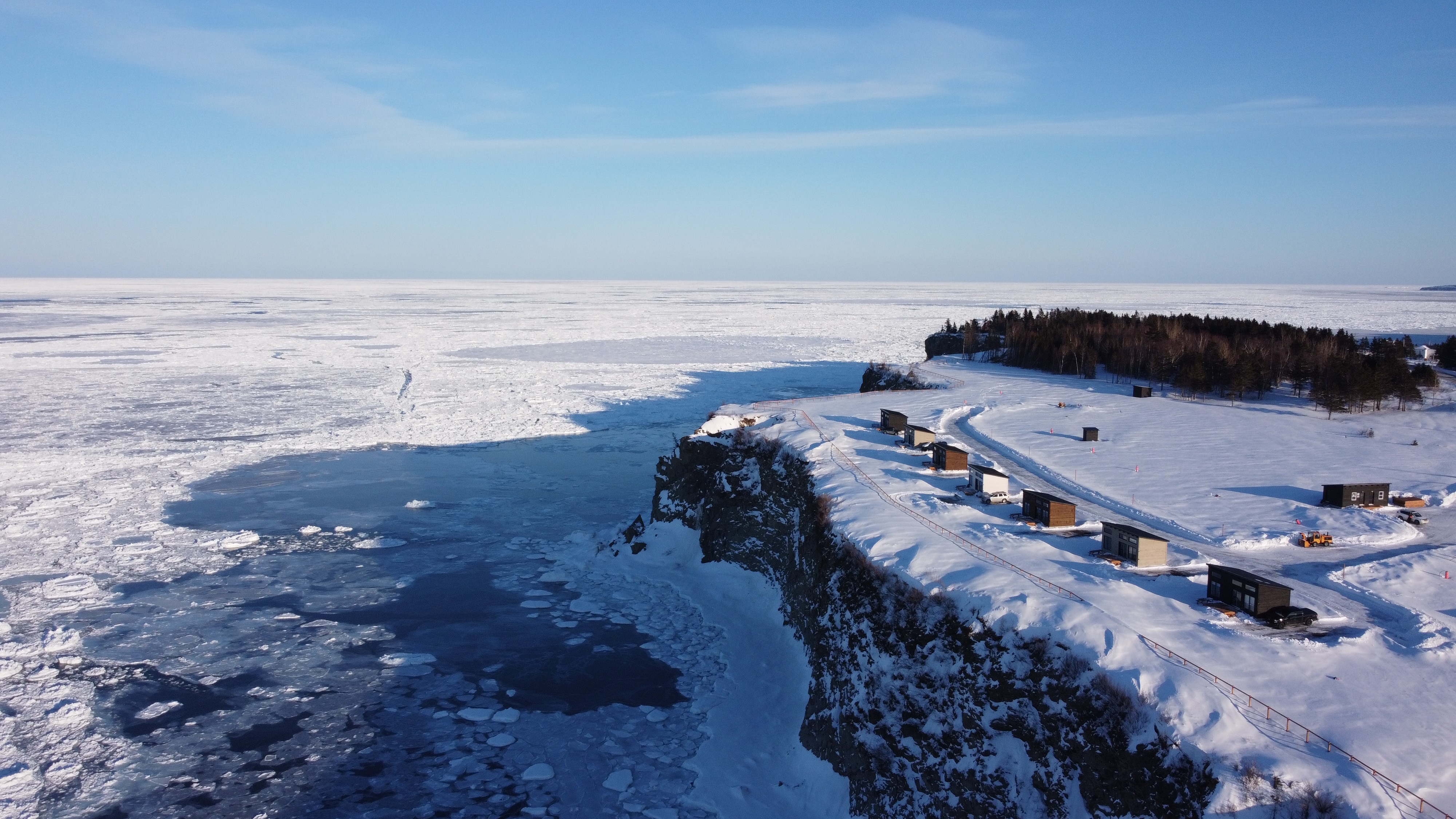The Mi'gmaq language: An ancestral heritage to be preserved

The Mi'gmaq have lived in Gespe'gewa'gi (the Gaspé Peninsula) for over 10,000 years, in harmony with Mother Earth. The Gespe'gewa'gi territory includes three Mi'gmaq communities: Listuguj, located at the mouth of the Restigouche River, Gesgapegiag, located at the mouth of the Cascapedia River, and Gespeg, which shares these lands with the town of Gaspé. Like other aboriginal peoples, the Mi'gmaq have their own language, which is taught in schools in Listuguj and Gesgapegiag, but not in Gespeg. In fact, Gespeg has no reserve with a school dedicated to teaching Mi'gmaq, which means that the children of the Gespeg community attend non-aboriginal schools. As there is no specialized Mi'gmaq school, Gespeg is currently working closely with the communities of Listuguj and Gesgapegiag to have fluent members of these communities teach Gespeg members the Mi'gmaq language. Gespeg has lost its language over time, and it's with the collaboration of the other two communities that we can relearn our language.

The Mi'gmaq language has existed as long as the Mi'gmaq people, and is a descriptive language belonging to the large Algonquian language family. This means that the names given to places, people and things are based on their appearance or the action they perform. Two different dialects of Mi'gmaq can be found: the Maritime provinces (Nova Scotia, New Brunswick, Prince Edward Islands, etc.) use a dialect that includes the letter 'K' instead of the letter 'G', and Quebec uses the letter 'G' instead of the letter 'K'. An example of this is the word 'Gwe', which means good morning. In Quebec we use the letter G to start the word, but in the Maritime provinces they use the letter 'K' for 'Kwe'. It's also important to know that the Mi'gmaq language doesn't follow the Latin alphabet, but has its own alphabet which is shorter and includes the apostrophe as a letter.
To better understand the place of the apostrophe, here's an example of a word that changes meaning depending on where the apostrophe is located,
Gesalul (Gay-sah-lool): I love you
Gesa'lul (Gay-saah-lool): I'm hurting you
Ge'sa'lul (Gaay-saah-lool): I throw you gently into the fire
By placing the apostrophe in the word, we can see from the example above how the meaning of the word changes. That's why it's important, when learning the Mi'gmaq language, to learn from a fluent Mi'gmaq speaker.
Here are some other examples of Mi'gmaq words,
Tia'm (Dee-awm): Moose
Mui'n (Moo-een): Bear
Gitpu (Git-boo): Eagle
Gwe' (Ga-way): Hello
Wela'lin (Well-ah-lin): Thank you
E'e (eh-hey): Yes
Moqwa (Mo-kwa): No
Language is the foundation of all culture, and the Mi'gmaq language is no different within Mi'gmaq communities. It's vital that we continue to teach the language to our younger generations and that we, as a community, continue to learn our language to keep it alive.
Gaspé sustainable destination
Sustainable development at the heart of our destination
Escale Gaspé is committed to making sustainable development a central, cross-cutting element of its strategic planning. It is aligned with Croisières du Saint-Laurent's Sustainable Development Strategy and shares its vision for the St. Lawrence destination.
The cruise industry contributes to the socio-economic vitality of Quebec and its regions, while helping to preserve and regenerate ecosystems. The St. Lawrence destination offers a human and sustainable experience with a positive impact, through the bridges we build between visitors and host communities, maritime, tourism and scientific players.
Escale Gaspé has taken action in recent years in terms of sustainable tourism development. It has equipped its cruise lodge with waste-sorting islands and a boutique showcasing local products. It also broadcasts sustainable and responsible tourism awareness content for cruise passengers, via a screen located in its pavilion.
The organization also rolled out its first-ever stakeholder consultation forum in spring 2025, participates regularly in the sustainable tourism best-practice sharing community Les Courants Durables du Saint-Laurent, and takes part in a social acceptability campaign run by Croisières du Saint-Laurent.
Destination Gaspé's brand-new, optimized website also stimulates the local economy and enhances the tourism offering by improving the visibility and appeal of local businesses. It offers a modern, engaging showcase on a centralized platform, while integrating rich content linked to local stories and the region's unique cultural events.


.jpeg)